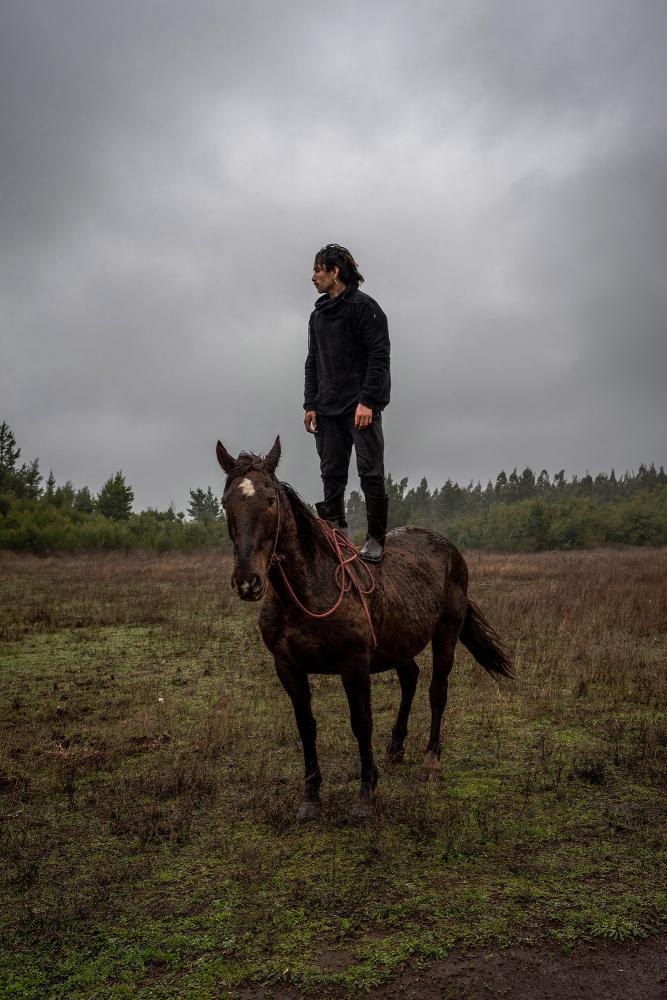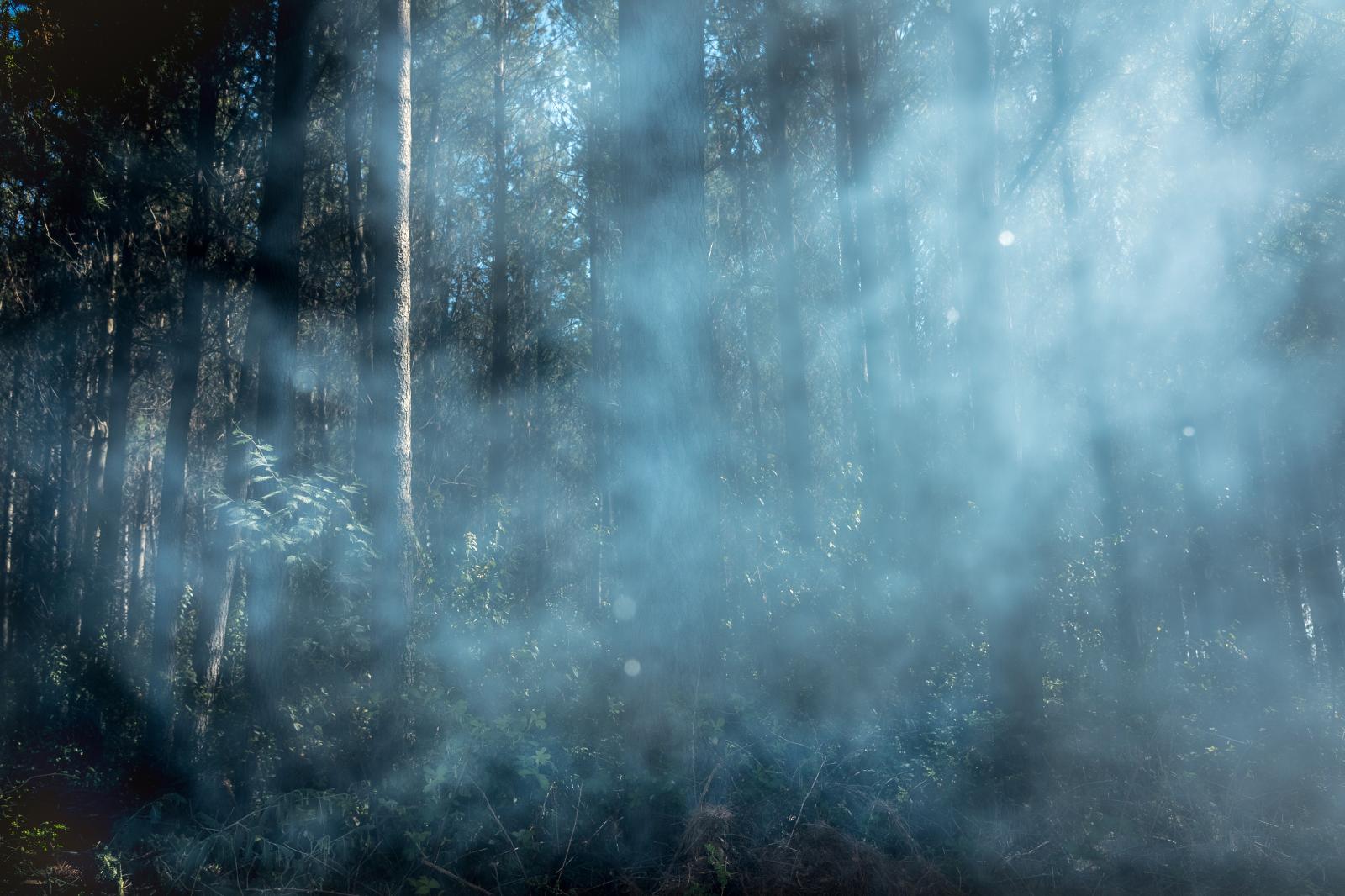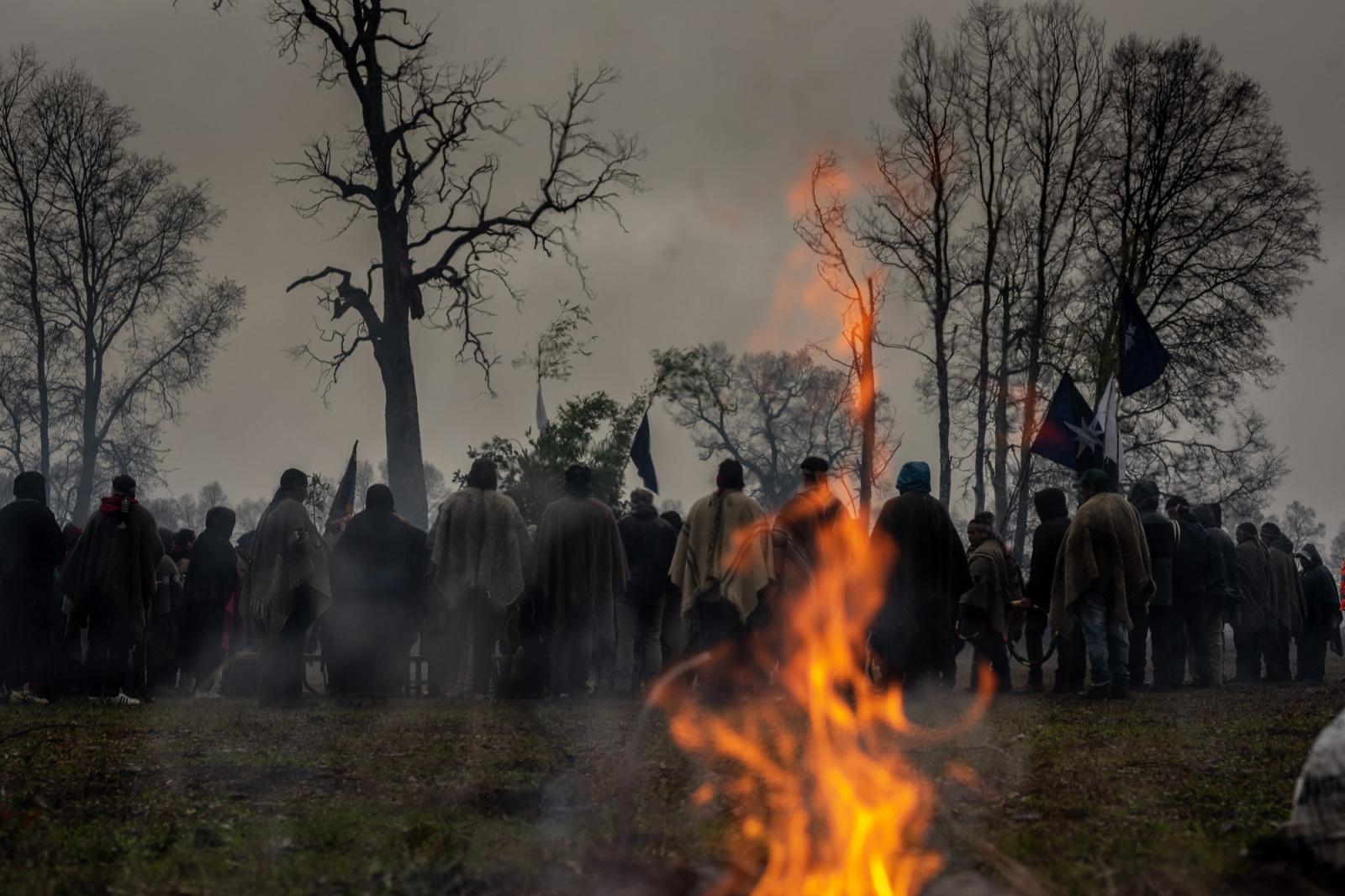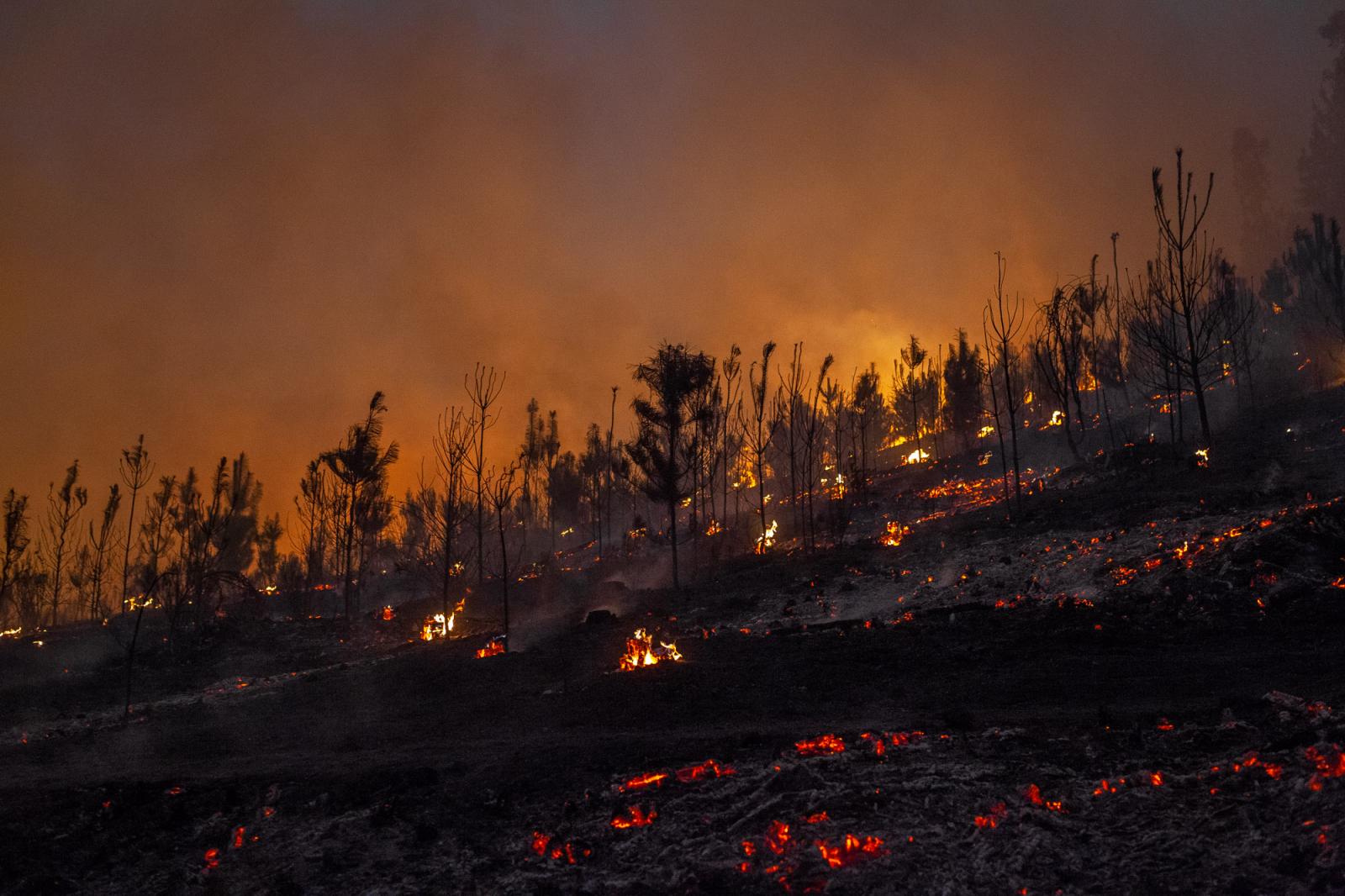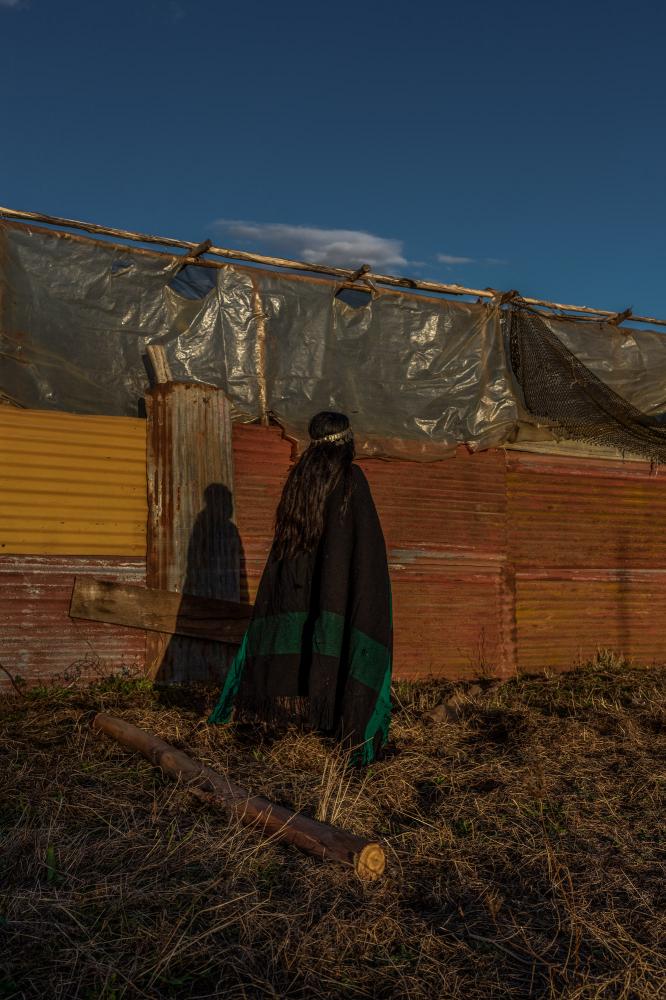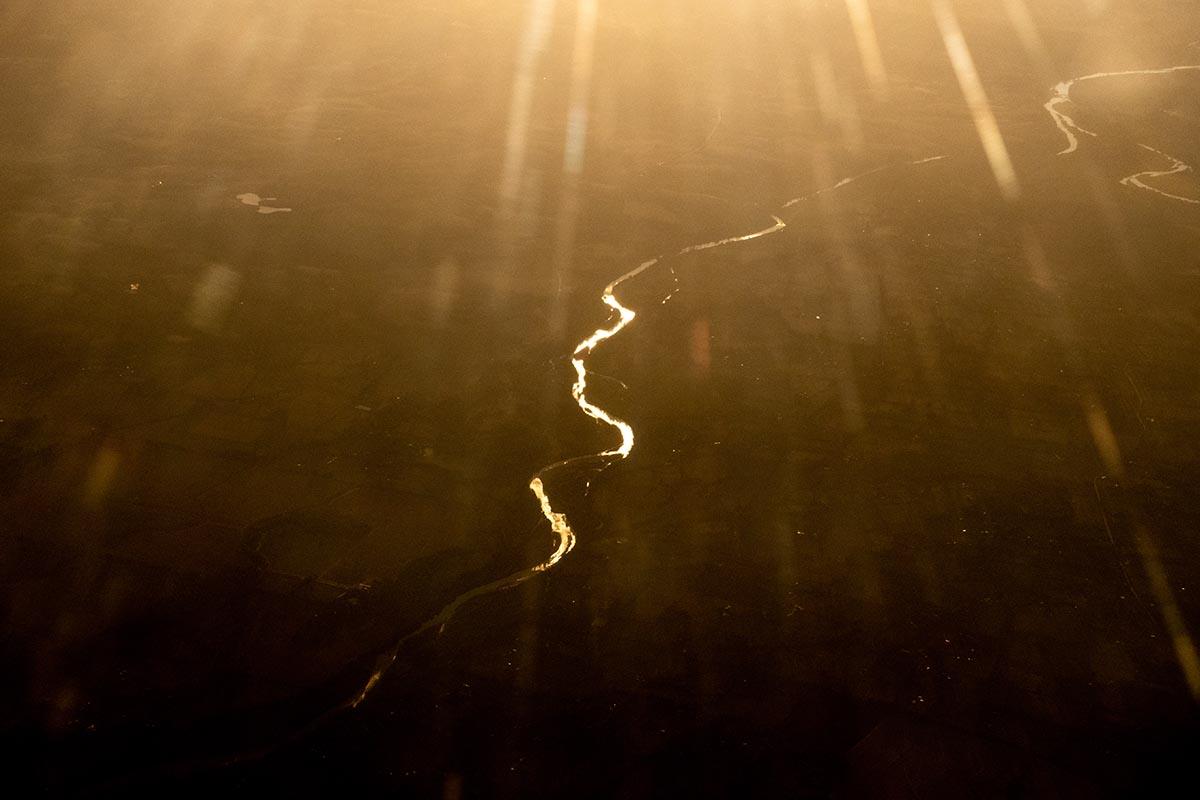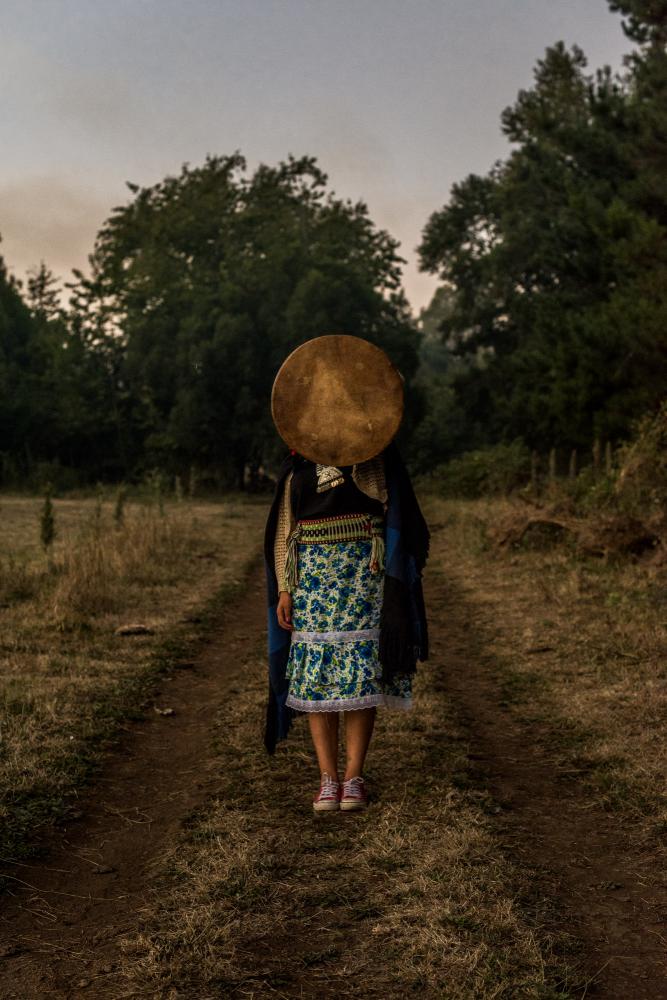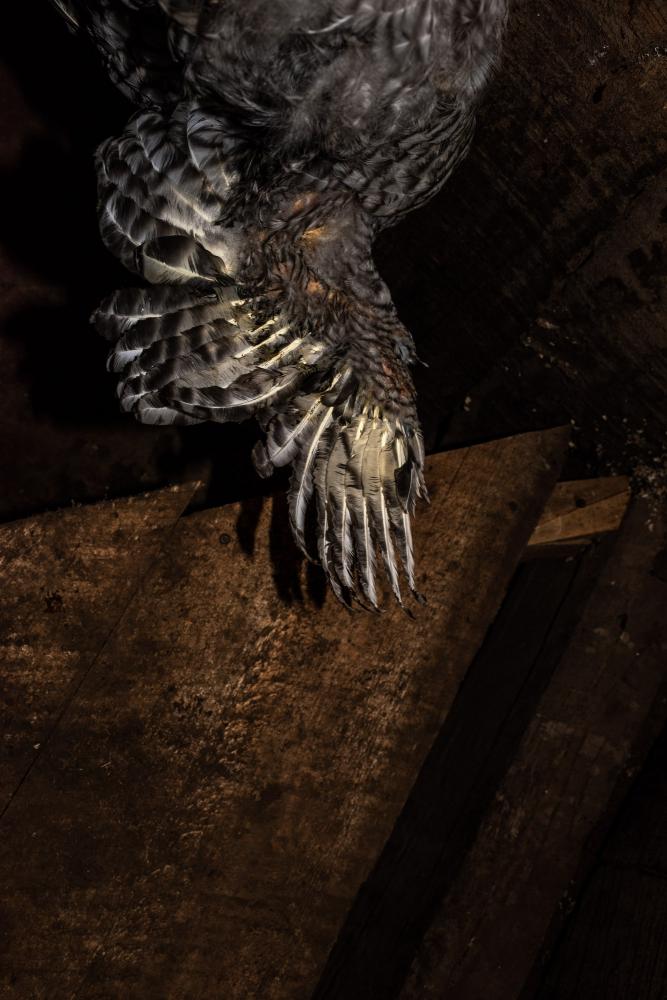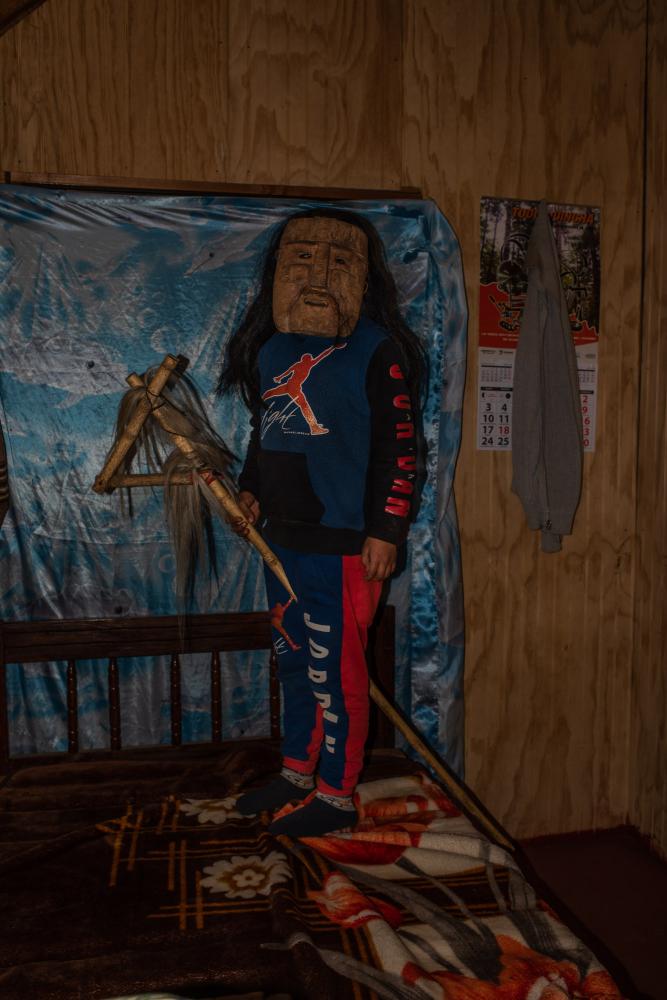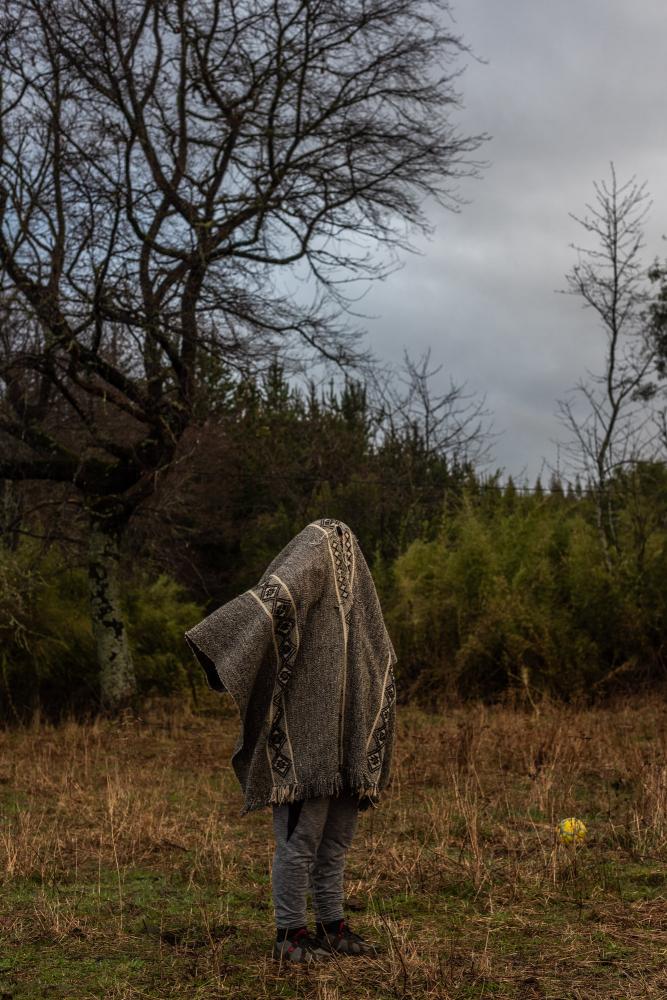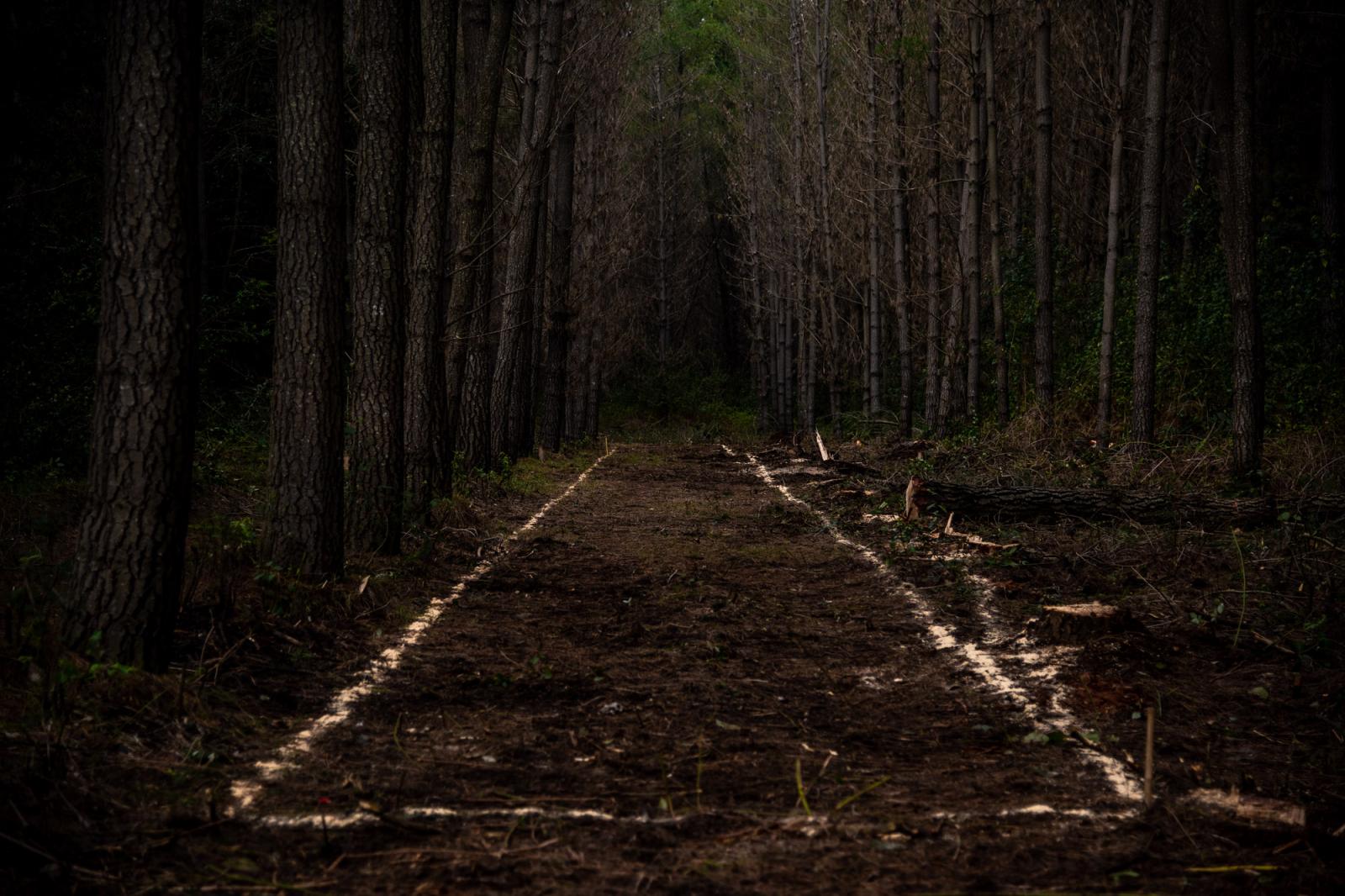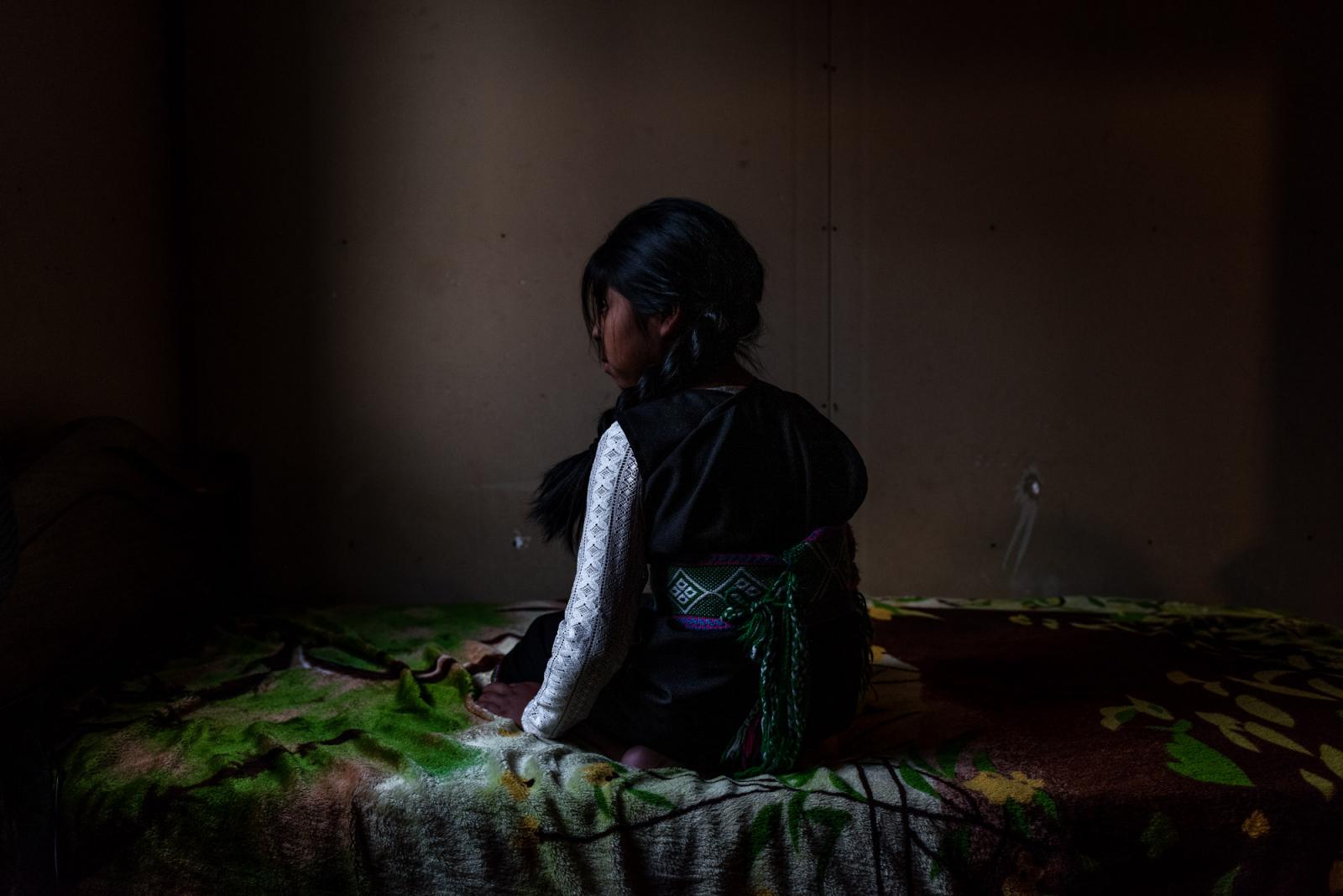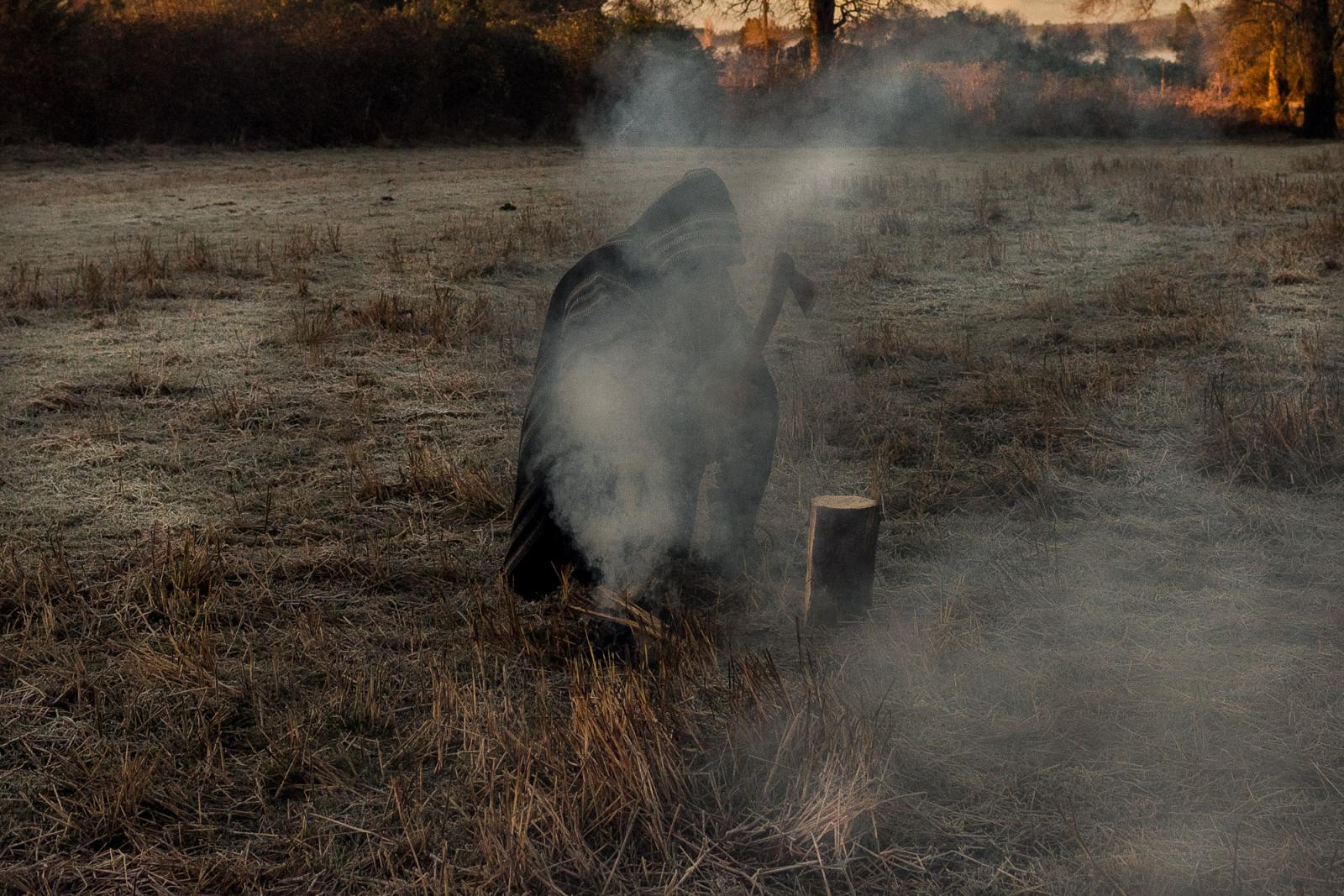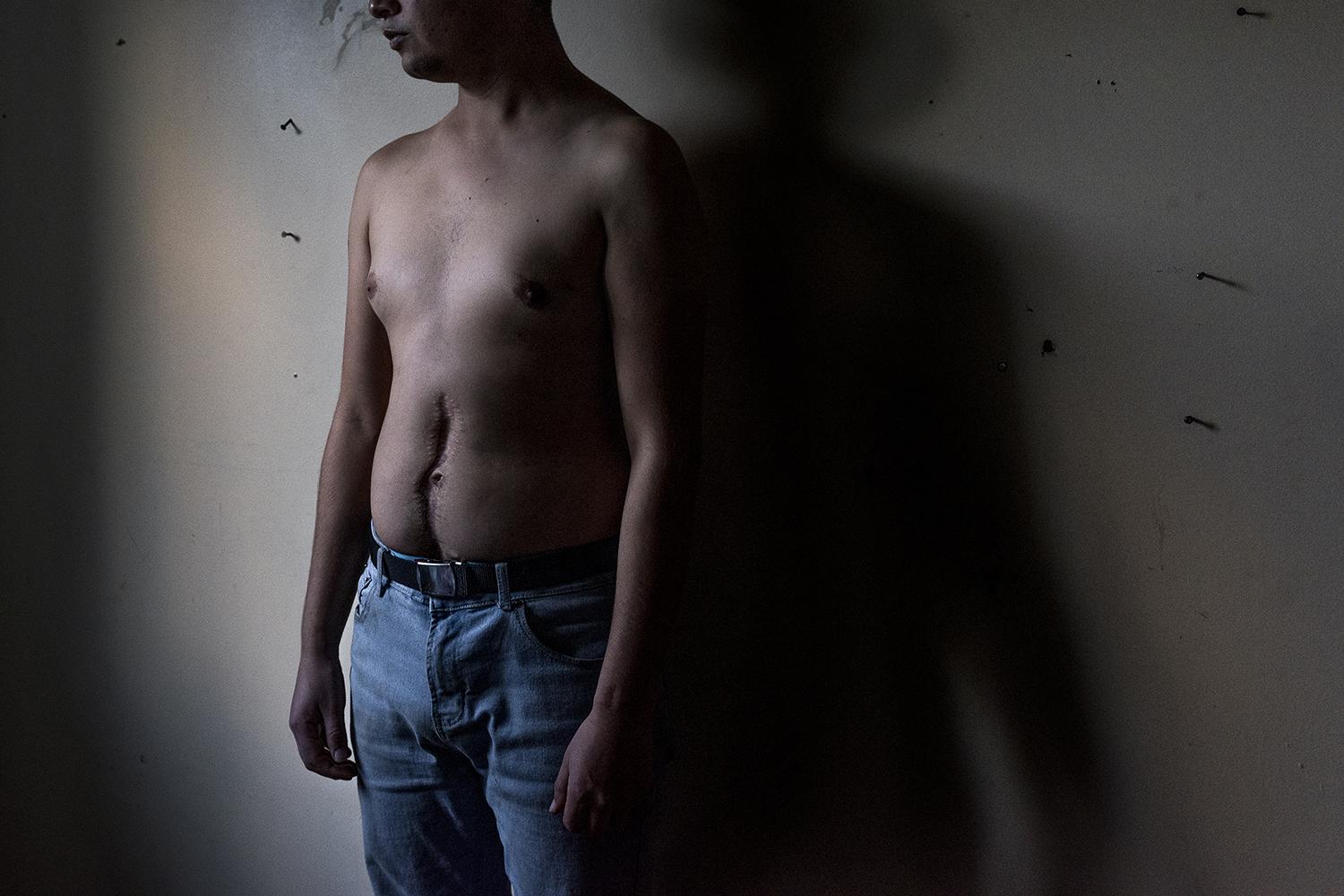Public Story
Mapuche
"Nighttime is not the same anymore, sometimes is longer...I never know when the police could come..." F.C (13)
For generations, the abuse of the Mapuche, who at around 1.9 million make up about 10% of Chile's population, has cast a shadow over Chile's prosperity. The region of Araucanía, where many of them live, is one of the poorest in the country with a population of 957.224 which 17,2% lives below the poverty level. For decades they've demanded the return of ancestral lands now in the hands of forestry and agriculture companies or descendants of European colonizers.
In the absence of a responsive government that allows the restitution of the land, the level of conflict between different governments and the communities in the Araucanía region increased.
The Mapuche adopted measures of pressure like the squatting of the lands and properties demanded. This claiming right process and increased clashes generated an adverse reaction from the government that resulted in the implementation of a policy of judicial persecution and criminalization of collective action, harassment and persecution of leaders, and the militarization of these ancestral territories.
Between 2015 and 2022, a total of 2.241 bullets have been fired by the police in the region. "The police have drones watching us all night," Carolina Soto, a Mapuche Werken, says.
In 2019, she was detained and beaten up. A policeman, pressing his boot onto her neck, dislodged her shoulder.
The violence against the Mapuche has serious and specific consequences on children and teenagers, derived from repression, criminalization, raids, interrogations, and other actions carried out by members of the special operation forces. Different NGO's and the national institute of human rights counted 133 cases that include several police violence against Mapuche youth between 2015 and 2019, while many other cases has not been reported. Those cases are rarely reported through traditional media, which brings misinformation, letting the Chilean population know very little about the Mapuche struggle and their demands, which continues and evolves daily and is far from over.
This project was made possible with the support of the Magnum foundation.
Mapuche: La Eternidad del Mañana (2019-En progreso)
"Las noches ya no son iguales, a veces son más largas... No sé cuándo los Carabineros podrían venir a mi casa..." F.C (13)
Durante generaciones, el maltrato a los mapuches, que con cerca de 1,9 millones de habitantes que constituyen aproximadamente el 10% de la población chilena, ha ensombrecido la prosperidad del país. La región de la Araucanía, donde viven muchos de ellos, es una de las más pobres del país, con una población de 957.224 habitantes de los que el 17,2% vive por debajo del nivel de pobreza. Durante décadas han exigido la devolución de tierras ancestrales que ahora están en manos de empresas forestales y agrícolas o de descendientes de colonizadores europeos.
A falta de un gobierno receptivo que permita la restitución de las tierras y sus demandas, el nivel de conflicto entre los distintos gobiernos y las comunidades de la región aumenta.
Los Mapuche adoptan medidas de presión como la ocupación de las tierras y propiedades reclamadas. Este proceso de reivindicación y aumento de los enfrentamientos generó una reacción adversa por parte del gobierno que se tradujo en la implementación de una política de persecución judicial y criminalización de las acciones colectivas, hostigamiento y persecución a dirigentes y la militarización de estos territorios y comunidades.
Entre 2015 y 2022, un total de 2.241 balas han sido disparadas por la policía en la región."La policía tiene drones vigilándonos toda la noche", cuenta Carolina Soto, Werken Mapuche.
En 2019, cuenta que fue detenida y golpeada. Un carabinero, presionando su bota contra su cuello, le desprendió el hombro.
La violencia contra los Mapuche tiene consecuencias graves y específicas en los niños y adolescentes, derivadas de la represión, criminalización, allanamientos, interrogatorios y otras acciones realizadas por miembros de las fuerzas de operaciones especiales. Diferentes ONG's y el Instituto Nacional de Derechos Humanos contabilizaron 133 casos que incluyen varios hechos de violencia policial contra jóvenes Mapuche entre los años 2015 y 2019 mientras que muchos otros no han sido denunciados.
Estos casos son raramente reportados a través de los medios de comunicación tradicionales, lo que trae como consecuencia desinformación, permitiendo que la población chilena conozca muy poco sobre la lucha Mapuche y sus demandas, las cuáles evolucionan a diario y están lejos de finalizar.
Este proyecto ha sido posible gracias al apoyo de Magnum Foundation.

